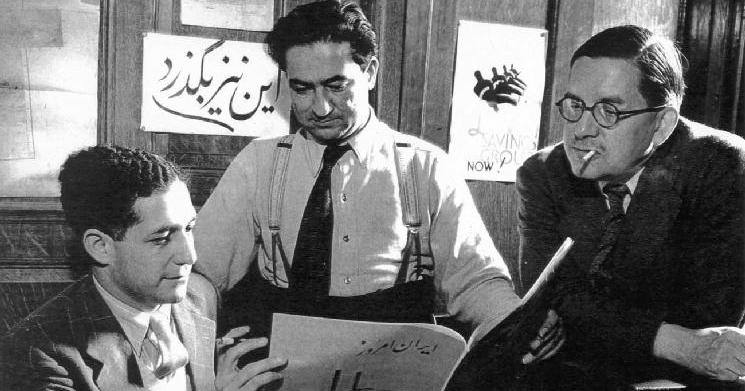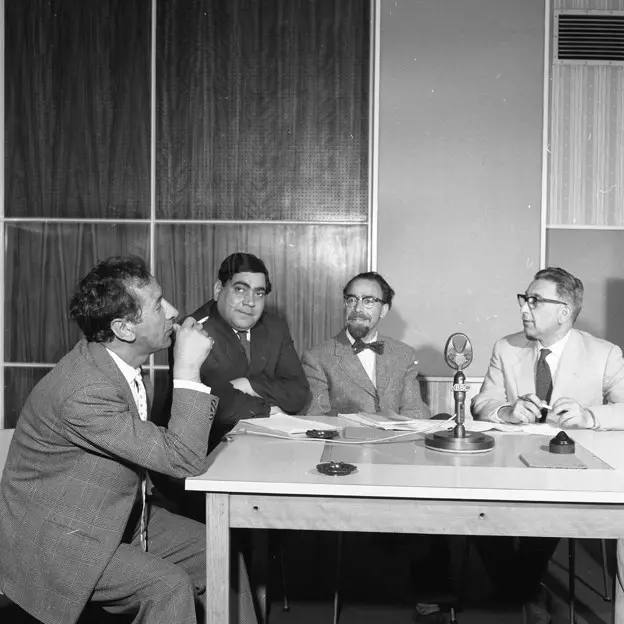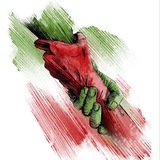Tales of Yesterday and Lessons for Today
1. The late Professor Mojtaba Minovi, who had taken involuntary residence in Britain out of fear of persecution under Reza Shah Pahlavi’s government, was among the founding editors and presenters of the BBC Persian Service. Yet, in September 1941, during the foreign military occupation of Iran by allied forces, he refused to align with the occupiers of his homeland or participate in their propaganda efforts.
2. According to the late Abbas Dehghan, a prominent BBC Persian broadcaster during Iran’s oil nationalisation period, the Iranian staff of the BBC Persian Service went on strike in protest against the colonial and anti-Iranian bias in the BBC’s global coverage. Ultimately, their action succeeded in moderating the BBC’s tone toward Iran.
Today, no one necessarily expects resignations or overt resistance from Persian-speaking employees of foreign anti-Iranian media outlets. But the minimal national expectation is this: refrain from collusion, refrain from justification, and do not express delight at the crimes of the barbaric occupiers and their supporters — just as the honorable predecessors of today’s generation once did.
Left Photo: Mojtaba Minovi in center
Right Photo: Abbas Dehghan on the left
1. The late Professor Mojtaba Minovi, who had taken involuntary residence in Britain out of fear of persecution under Reza Shah Pahlavi’s government, was among the founding editors and presenters of the BBC Persian Service. Yet, in September 1941, during the foreign military occupation of Iran by allied forces, he refused to align with the occupiers of his homeland or participate in their propaganda efforts.
2. According to the late Abbas Dehghan, a prominent BBC Persian broadcaster during Iran’s oil nationalisation period, the Iranian staff of the BBC Persian Service went on strike in protest against the colonial and anti-Iranian bias in the BBC’s global coverage. Ultimately, their action succeeded in moderating the BBC’s tone toward Iran.
Today, no one necessarily expects resignations or overt resistance from Persian-speaking employees of foreign anti-Iranian media outlets. But the minimal national expectation is this: refrain from collusion, refrain from justification, and do not express delight at the crimes of the barbaric occupiers and their supporters — just as the honorable predecessors of today’s generation once did.
Left Photo: Mojtaba Minovi in center
Right Photo: Abbas Dehghan on the left
tgoop.com/majidtafreshi/2660
Create:
Last Update:
Last Update:
Tales of Yesterday and Lessons for Today
1. The late Professor Mojtaba Minovi, who had taken involuntary residence in Britain out of fear of persecution under Reza Shah Pahlavi’s government, was among the founding editors and presenters of the BBC Persian Service. Yet, in September 1941, during the foreign military occupation of Iran by allied forces, he refused to align with the occupiers of his homeland or participate in their propaganda efforts.
2. According to the late Abbas Dehghan, a prominent BBC Persian broadcaster during Iran’s oil nationalisation period, the Iranian staff of the BBC Persian Service went on strike in protest against the colonial and anti-Iranian bias in the BBC’s global coverage. Ultimately, their action succeeded in moderating the BBC’s tone toward Iran.
Today, no one necessarily expects resignations or overt resistance from Persian-speaking employees of foreign anti-Iranian media outlets. But the minimal national expectation is this: refrain from collusion, refrain from justification, and do not express delight at the crimes of the barbaric occupiers and their supporters — just as the honorable predecessors of today’s generation once did.
Left Photo: Mojtaba Minovi in center
Right Photo: Abbas Dehghan on the left
1. The late Professor Mojtaba Minovi, who had taken involuntary residence in Britain out of fear of persecution under Reza Shah Pahlavi’s government, was among the founding editors and presenters of the BBC Persian Service. Yet, in September 1941, during the foreign military occupation of Iran by allied forces, he refused to align with the occupiers of his homeland or participate in their propaganda efforts.
2. According to the late Abbas Dehghan, a prominent BBC Persian broadcaster during Iran’s oil nationalisation period, the Iranian staff of the BBC Persian Service went on strike in protest against the colonial and anti-Iranian bias in the BBC’s global coverage. Ultimately, their action succeeded in moderating the BBC’s tone toward Iran.
Today, no one necessarily expects resignations or overt resistance from Persian-speaking employees of foreign anti-Iranian media outlets. But the minimal national expectation is this: refrain from collusion, refrain from justification, and do not express delight at the crimes of the barbaric occupiers and their supporters — just as the honorable predecessors of today’s generation once did.
Left Photo: Mojtaba Minovi in center
Right Photo: Abbas Dehghan on the left
BY مجید تفرشی/ Majid Tafreshi


Share with your friend now:
tgoop.com/majidtafreshi/2660
